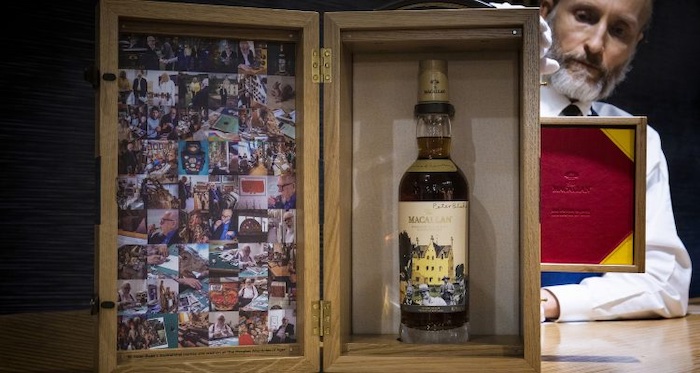


When a loved one passes away leaving behind a prized whisky collection, proper valuation becomes a crucial yet often overlooked aspect of the probate process. Getting it right matters – not just for legal compliance, but because accurate valuation directly affects inheritance tax liability. Many executors unknowingly use inappropriate pricing methods that could cost the estate thousands in unnecessary taxes or, conversely, trigger unwanted HMRC scrutiny. With whisky investing growing in popularity and collections becoming increasingly valuable, understanding how to properly value these assets has never been more important.
Tip 1: Understand Open Market vs Retail Pricing
A common and costly mistake when valuing whisky for probate is using retail prices. HMRC specifically requires “open market value” – what the bottles would actually sell for if placed on the open market today. This typically means auction prices, not the often inflated figures seen in retail shops or online stores.
The difference can be substantial. A bottle of limited edition whisky might be priced at £1,000 in specialist shops but fetch only £220 at auction. Recent auction results from reputable platforms like Whisky Auctioneer or Scotch Whisky Auctions provide the most reliable benchmark for probate purposes.
Remember that HMRC may challenge valuations they believe to be inaccurate, potentially leading to penalties and delays in the probate process. Using demonstrable auction data as evidence of your valuation methodology provides a solid foundation for your submission.
Tip 2: Don’t Forget About Whisky Casks
Bottles aren’t the only whisky assets that require valuation – casks must also be properly assessed for probate. With the dramatic rise in whisky cask investment schemes over recent years, many estates now include cask holdings that require careful evaluation.
Unfortunately, this area has seen significant growth in misleading investment schemes where casks are sold to investors at prices far exceeding their true market value. An executor might find paperwork suggesting a cask was purchased for £10,000, when its actual open market value might be considerably less.
The value of a cask depends on numerous factors: the distillery, age, condition, RLA and current market demand. Proper valuation requires specialist knowledge and access to current market data. Using purchase price alone is rarely appropriate and could result in the estate paying unnecessary inheritance tax on overvalued assets.
Tip 3: Professional Valuation Can Save Money
While it might seem counterintuitive to pay for professional valuation services, expert assessment of valuable whisky collections can actually save significant money for the estate. Professional valuers understand the nuances of the whisky market and can identify bottles with exceptional value that might otherwise be overlooked.
These experts can also spot counterfeit bottles or labels – an increasingly common problem with rare whiskies – preventing potentially costly mistakes. Additionally, a formal probate valuation from specialists like Swift Values provides documentation that stands up to HMRC scrutiny, reducing the risk of time-consuming challenges during the probate process.
Professional valuers backed by proper indemnity insurance offer protection should queries arise later. For valuable collections, particularly those containing rare or limited-edition bottles, the cost of professional valuation services typically represents excellent value compared to potential tax savings or avoiding penalties for incorrect valuations.
Tip 4: Age Doesn’t Always Equal Value
A common misconception is that older whisky automatically commands higher prices. While age is certainly a factor in valuation, it’s far from the only determinant of a bottle’s worth.
Limited edition releases, regardless of age, can fetch remarkable prices at auction due to their scarcity. Similarly, bottles from “silent” or closed distilleries often carry significant premiums, as their supply is permanently fixed. A 12-year-old whisky from a closed distillery like Port Ellen might be worth far more than a 30-year-old bottle from a common producer.
Other factors significantly affecting value include bottle condition, packaging completeness (original boxes and certificates), fill level, and even label condition. Whisky from limited runs or special commemorative releases may also command premium prices regardless of age. Understanding these nuances is essential when compiling a comprehensive probate valuation that accurately reflects the true market value of a collection.
Final Thoughts
Navigating whisky valuation for probate requires careful attention to detail and understanding of a complex market. Whether dealing with a modest collection or an extensive portfolio of rare bottles and casks, accurate valuation is essential for fair inheritance tax assessment and smooth probate administration.
For valuable collections, particularly those containing rare bottles or casks, seeking professional probate valuation services can provide peace of mind and potentially save significant sums in tax. With HMRC increasingly scrutinising high-value assets, having properly documented valuations from recognised experts ensures you’re fulfilling your executor duties correctly.
Remember that probate valuation isn’t just a legal requirement – it’s an opportunity to ensure the deceased’s whisky collection is properly recognised for the valuable asset it truly is, and that the beneficiaries receive their fair inheritance without unnecessary tax burden.







